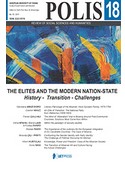The Transition of Albanian Art and Culture Facing the Future Challenges
The Transition of Albanian Art and Culture Facing the Future Challenges
Author(s): Ermir NikaSubject(s): Theatre, Dance, Performing Arts, Cultural history, Archiving, Library operations and management, Sociology of Culture, Transformation Period (1990 - 2010), Film / Cinema / Cinematography, Sociology of Art
Published by: Shtëpia botuese “UET Press”
Keywords: Ministry of Culture; Cultural Policy; Copyright; Movie; Theater; Art; Book; Library; Cultural Heritage; Archives;
Summary/Abstract: After the end of the communist regime in Albania, culture and its institutions were the areas which had to suffer the most extreme damages and transformations. It was not only the way of thinking for a new way of managing, but its infrastructure as a whole, on a regular basis has suffered from considerable damages. In a different point of view, there was also a further considerable departure of individuals and the artistic community with the phenomenon of emigration.In these conditions, the first step that was taken was the drafting and implementation of legislation through which cultural and artistic institutions could operate, as well as free private initiatives. Firstly was first introduced the concept and were taken steps for drafting an intellectual property legislation, the law on cinematography, theater, cultural heritage, libraries and the book, in accordance with the recommendations of the expert representatives of the European Union authorities. Further, the first efforts were made by setting up working groups to draft the first strategic drafts on art and culture as well as medium and long-term budget projections. Consequently, the first effects of a cultural policy aimed at implementing a new administrative-legal platform were felt. This policy would firstly respect the principles of decentralization and secondly the cooperation with the homologous structures of the countries of the Balkan region and further with those of Europe and beyond. The various phases of the reform did not always brought the expected expectations with the projected objectives. As a result, the transition to art and culture institutions lasted somewhat longer than in different sectors of Albania’s socio-political development.
Journal: Polis
- Issue Year: 1/2019
- Issue No: 18
- Page Range: 129-146
- Page Count: 18
- Language: English

